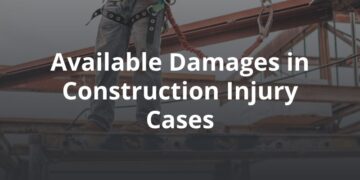NOTE: Our Austin personal injury lawyers do not handle Mirena Crash cases. This article is for informational purposes only. The article’s information does not constitute formal legal advice or create an attorney/client relationship.
Women have limited available options to prevent pregnancy. Of those limited options, Mirena is marketed as the perfect long-term protection against pregnancy.
However, what may seem like a perfect solution comes with a laundry list of drastic potential side effects.
What Is Mirena?
Mirena is a hormonal intrauterine device (IUD). The technology is a T-shaped plastic structure that medical professionals place into the uterus. The IUD then emits a certain kind of progestin hormone. The added hormone helps to prevent pregnancy, and as an added benefit, it can also help with painful or heavy periods.
Mirena can prevent pregnancy for up to seven years after it is implanted. It is one of many hormonal IUDs approved by the Food and Drug Administration.
What Is the Mirena Crash?
The Mirena crash is a term used to describe some people’s adverse effects after removing their Mirena IUD. The withdrawal response is hypothesized to be triggered by a hormonal imbalance created when a woman’s body, which has become accustomed to the added hormone, is no longer getting progestin. Symptoms can linger for days, weeks, or even months.
Symptoms of the Mirena crash can include:
- Mood fluctuations ranging from mild to severe
- Depression
- Anxiety
- Headaches and migraines, accompanied by neck and shoulder discomfort
- Trouble with weight gain
- Loss of hair
- Vomiting
- Fatigue
- Mild to severe acne
- Swelling of the breasts
- Reduced libido
- Fertility problems
There is no clinical research confirming a relationship between the removal of the IUD and the symptoms. However, this is likely due to a lack of knowledge and insufficient research on the issue.
Despite the lack of evidence, the symptoms women face day in and day out are real. In some cases, women have symptoms while the IUD is in place and claim that the symptoms continue or worsen after it is removed.
How to Treat Symptoms of Mirena Crash
Consult your doctor if your symptoms are severe; they may be able to help you work through them. If you experience anxiety or sadness after stopping Mirena, it might be due to a hormonal imbalance.
Talk to a therapist or try counseling if your depression or anxiety becomes incapacitating. Connecting with friends and relatives may be helpful as well.
Other options for treating Mirena crash effects include:
- Over-the-counter pain relievers and muscle relaxants
- Yoga and meditation
- Eating enough and as healthily as possible
- Reducing sugar, caffeine, and alcohol
- Avoiding cigarettes or vaping
Always seek immediate medical care if you begin to experience any of the following:
- Extreme pain in your uterus or abdomen
- Severe headaches
- High fever
- Profuse bleeding
- Suicidal thoughts or thoughts of self-harm
A medical professional will be able to diagnose and treat a Mirena-related injury.
Lawsuits Regarding Mirena IUDs
Mirena IUDs have been the subject of several lawsuits relating to the device’s adverse effects and severe responses. Many women claim to have suffered financial losses, injuries, and other consequences from using the Mirena IUD.
The following are some of the risks connected with the use of the Mirena IUD:
- Perforation
- Intrauterine pregnancy
- Ectopic pregnancy
- Sepsis
- Irregular bleeding
- Breast cancer
- Pelvic inflammatory disease (PID)
- Ovarian cysts
Producers of medical devices are obligated to issue warnings regarding inherent risks and adverse effects of their devices. The notices must provide enough information to allow women to make an educated decision on whether the IUD is the right fit for them.
Providing a warning, however, does not protect the Mirena manufacturer from being liable for injuries and damages caused by the IUD. By filing a product liability lawsuit, you may be eligible for compensation for medical treatment that you endure due to a defective IUD. Get in contact with a personal injury lawyer to help with your case.







